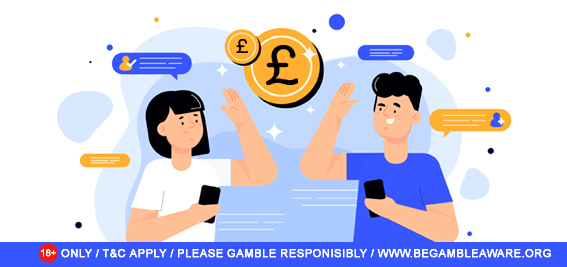If you like to play the games of chance, you would understand that knowing the best online payout slots is a piece of beneficial information. However, a lot of novice players misunderstand the idea of payout percentage. Because of their misunderstanding, they usually have an unrealistic expectation of how much they stand to win in the game of online slots. This casino guide will explain to you the payout rates offered in online casinos.

What are the payout rates?
Payout rates are statistics that are designed by online casinos to give gamblers an idea of how likely they are to win at the slot game or how much they can expect to lose during the gameplay. Casino payout rate figures are expressed as a percentage and they indicate how much money wagered on a specific game is returned to the player on average.
Payout percentage
Payout percentage means the percentage of the total amount of money that the online slot will take from the gambler and then pay it out as winnings to him. Most online casinos offer a payout percentage between 75 and 98%. It is based on the slot game variant and can vary from one online casino to another. Although understanding the payout percentage is very easy, people often confuse it to mean the number of wins the slot would pay them. Some novice players believe that if they bet £1000 on a slot that has a 97% payout rate, they would get £1997, which is a wrong betting system ideology. A payout percentage doesn’t mean how much of your wagered money you’re going to receive back in the form of a payout.
Payout percentage – The number of spins
Gambling regulators verify the slot payout percentage offered by online casinos. They run a series of tests to authenticate the payout claim of the slot. The regulators spin the reels of slots millions of times to generate the actual payout. The payout percentage makes more sense to the casino as it is a statistic which tells them when a slot machine should payout. Hence, it is hard for the gambler to know the payout of a particular slot game. It will take a lot of money and time to spin the reels for hundreds of times to generate the payout level of a slot machine.
Keep in mind that making a small number of spins is almost irrelevant to the payout percentage. The more spins you make, the more relevant the payout percentage will become for you. So, the best way to understand the payout percentage is to know how much the machine can pay out after millions of spins.
Payout percentages – the Structure of Payouts
The structure of the payout is another key thing to know about the payout percentage. For example, assume that there is a particular slot machine with a payout percentage of 97%. The slot machine generates £ 1,000,000 revenue in a month from 1,000,000 spins. This means that the casino takes 2% of the generated revenue and the remaining 98% goes to players. These games can bring a huge amount of money to lucky players and there’s no harm in trying your luck.
Return to Player (RTP) Percentages
Return to Player (RTP) percentage is used to indicate specific details about the slot game. They are similar to payout percentages but are calculated by running simulations through games instead of monitoring the betting activity of players. They are provided by game developers and some casinos even make a list of them for customer convenience. You can also get this information from reviews and information pages of the casino. It’s important for you to check the variance of the game.
Understanding the House Edge
The house edge is usually associated with casino games like Blackjack, Baccarat and Roulette. It is used to describe the mathematical advantage that the commercial gambling venue has over you as you play over time. This results in an assured percentage win to the casino over time and for the player an assured percentage loss of what he bet.
The house edge assists the online casino to cover its costs for providing the game, paying for the staff, maintaining the site and so on. The house edge is in every form of commercial gambling which means that the more you play over time, the more you will lose. As the games of chance involve the element of skill and luck, practising the game can improve your odds of winning.

